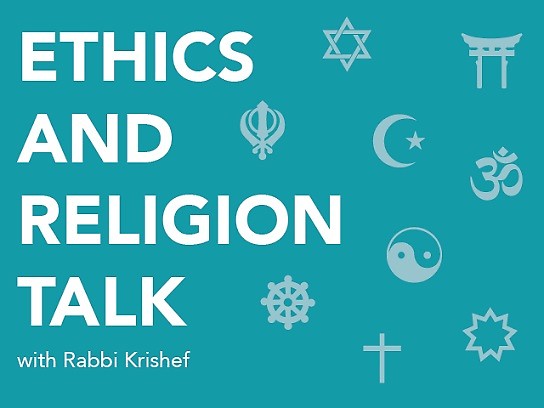The Reverend Colleen Squires, minister at All Souls Community Church of West Michigan, a Unitarian Universalist Congregation, responds:
“This may surprise many but most Unitarian Universalists do not rely on scripture to make our decisions. We draw upon many sources and resources to make our decisions. Our faith has Our Seven Principles which we use as a guide or moral compass. We also rely heavily on logic, science, common sense, advice from professionals and often our inner voice.”
The Rev. Sandra Nikkel, head pastor of Conklin Reformed Church, responds:
“When making a decision I pay attention to Proverbs 3:5 ‘Trust in the Lord with all your heart and lean not on your own understanding.’ And, I don't believe one source is enough to confirm God's direction. The Bible highlights the importance of two to three witnesses to confirm a matter. So, besides the Scriptures, I also believe that God speaks through the counsel of his people so I look for their thoughts and insights about the matter. Finally, I seek to listen to the quiet voice of the Spirit in my heart. This usually involves an extended time of silence where all the noise in my head and the anxious thoughts circling my mind can leave me.”
Father Michael Nasser, who writes from an Eastern Christian perspective and is Pastor of St. Nicholas Orthodox Christian Church, responds:
“Eastern Orthodox Christianity has held Holy Scripture as the Canon -- literally the ‘ruler’ (like the one in the desk drawer) -- that measures the truthfulness of other teachings. These can be the things we state in our worship, the writings of Christians experienced and advanced in the spiritual life, and even the lives of those whose actions exemplify and define the truth of a lived faith.”
Fred Stella, the Pracharak (Outreach Minister) for the West Michigan Hindu Temple, responds:
“It is incumbent on every pious Hindu to explore a variety of sources when deciding on these matters. This would include secular sources such as science, along with reason, personal experience and intuition. Those who are constrained by scriptural guidance alone often claim that this sort of deduction can lead to chaos. Theoretically it can--if one uses these tools purely for self-serving aims. But thousands of years of history proves that it need not be so.
“A case in point would be that our in foundational scriptures, The Vedas, though there are plenty of verses that indicate an appreciation for women there is a heavy emphasis on the value of sons. There are several prayers either wishing for them or thanking God for them. Understanding the era in which all this was written one can make sense of this. But this kind of thinking has no place in our society today unless some sort of cosmic mutation of our species resulted in an overabundance of female offspring.
“It is also appropriate to study the scriptures of other religions when pondering these life essentials. When Gandhi was formulating his philosophy he drew liberally from the wells of other religions while maintaining his Hindu identity.”
My response:
People will call me and ask questions about the Hebrew Bible, assuming that Judaism is a Biblical religion and therefore I must be an authority on the Hebrew Bible. I like the Hebrew Bible and consider the first five books to be especially important to Jewish life. However, I explain that Judaism is not a Biblical religion - it is a religion based on the Hebrew Bible, read through the lens of the rabbis of the first century. Through their literature, they expanded the nature of Jewish practice into an all-encompassing spiritual tradition that carried God’s voice and Biblical traditions into a new millenium. So the first non-scriptural sources I turn to are Talmud, the post Talmud codifications of Jewish practice, and collections of questions and responses from the 19th, 20th, and 21st century. I also look at Bible commentaries that emphasize theology and spiritual development.
I also believe that it is important to take scientific, medical, and sociological data into account, especially when researching questions that pre-modern or pre-21st century Jews would not have faced. Even age-old questions which every generation encounters should be examined under the light of that which we know about the world which our forbears were unaware. Contemporary scholarship sheds light on the historical context of Biblical and rabbinic literature, and can be crucial to understand the development of Jewish thought and practice.
Of course, making any decision or answering any question requires careful, logical reasoning, sensitivity, and a sense of how the response will serve the greater good of the individual’s or the community’s spiritual development.
This column answers questions of Ethics and Religion by submitting them to a multi-faith panel of spiritual leaders in the Grand Rapids area. We’d love to hear about the ordinary ethical questions that come up on the course of your day as well as any questions of religion that you’ve wondered about. Tell us how you resolved an ethical dilemma and see how members of the Ethics and Religion Talk panel would have handled the same situation. Please send your questions to [email protected].
The Rapidian, a program of the 501(c)3 nonprofit Community Media Center, relies on the community’s support to help cover the cost of training reporters and publishing content.
We need your help.
If each of our readers and content creators who values this community platform help support its creation and maintenance, The Rapidian can continue to educate and facilitate a conversation around issues for years to come.
Please support The Rapidian and make a contribution today.
